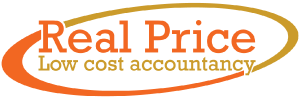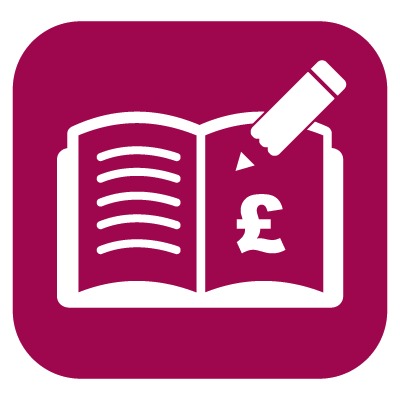Annual Accounts
We have transformed traditional accountancy services by developing a range of transparently priced accountancy products; whilst maintaining the integrity of
the professional relationship with a clearly defined description of what you
get for your money at a fixed retail price.
Now for the first time you are able to compare accountancy
services on both a clear value benchmark, which evaluates quantity and quality
of work done along with price.
Our Chartered Accountants are able to prepare annual
accounts for the following business types:
- Sole trader
- Partnerships
- Limited Companies
What are
year-end annual accounts?
Annual accounts are sometimes referred to as an annual
report, trading accounts or financial statements. The annual or year-end accounts are a summary
of all the entities transactions in a 12 month period which is usually referred
to as the financial trading period.
They give a clear picture of both the trading
activity of the business over a 12 month
period through the profit and loss account, whilst the balance sheet gives a
clear snapshot of the business finances on the last day of that period.
Annual accounts are
probably the most common accountancy service which a business asks an
accountant to perform
Annual accounts are probably the most common accountancy service which
a business asks an accountant to perform.
Who has to
prepare annual accounts?
Be it a sole trader, partnership or limited company, the need for
year-end annual accounts is common to all 3 different entities. Annual accounts
are the product of the businesses bookkeeping records.
What is a trial
balance?
The bookkeeper brings together all the entries
in the different ledgers which make up the books whether this is kept on paper
books, spreadsheets or accounting software. It includes sales invoices, purchase
receipts, bank payment and cash payments, into an accounting document called a
trial balance. The trial balance is passed from the bookkeeper to the
accountant and this forms the basis for the yearend annual accounts. It is basically a summary of all the totals
in the accounting records and should balance with how the business was funded
whether through sales income or capital invested.
Are year end and
annual accounts different?
Both Annual accounts and year-end accounts are the same
thing, as are annual reports, trading accounts and financial statements.
What information should be in the annual accounts?
Generally speaking but not always, annual
accounts should include;
-
Profit and loss account or
income expenditure statement
- Balance sheet
- Fixed asset and depreciation schedule
-
Accountants report
-
Signature of proprietor/partner/director
- Directors report
- Notes to the accounts
- Officials
and directors information
What is the purpose
of preparing annual accounts?
Annual accounts provide an annual (year-end) summary of the businesses
financial performance. This can provide
essential information on how well or how badly the business is performing.
Additionally, every business has a legal requirement to
report their key financial data to HMRC and for limited companies the additional
requirement to file accounts with the Register of companies at companies house.
What is bookkeeping?
If you want to keep control of your business finances, then bookkeeping is an essential process that must be adopted by every business owner. Successful businesses are able to plan and forecast what might happen to their business in advance of committing capital (cash). This is particularly important for new business start-ups, who are unlikely to have any past track record to measure against. After all if you don’t know what your sales for the month were or accurately what your purchases and overheads were, how can you know whether you made a profit or ran at a loss?
How to do bookkeeping?
There are two methods of bookkeeping, single entry bookkeeping and double entry bookkeeping. However, you can use whatever system you want to record your business transactions. Provided it works for you.
That said your suppliers and trade customers will most probably be using a double entry bookkeeping system. Which is the most common accounting method used in the UK. The main basis of double entry book keeping is that ‘what comes in must go out – and vice versa’ meaning you should record not only what the item was but how was it paid.
What records are needed to be your own bookkeeper?
The financial transactions that are most commonly recorded are purchase receipts, sales invoices and any other payments received and spent. It is also good practice to reconcile (check) your bank statements against the purchases and sales on a weekly or monthly basis as sometimes receipts can be lost or you may have business payments such as rates etc which you don’t get an invoice for, but are paid direct through the bank. Receipts and other payments including cash payments should also be recorded.
Cash payments can be controlled through a variety of means the most common being a petty cash system where you start with a set amount of cash and record this in a book or sheet of paper. Then as something is spent record it and attach the receipt to the paper. Weekly or monthly total up the cash left, and the receipts and recordings and they should equal the original amount.
Who can be a bookkeeper?
The person who enters the financial transactions is known as a bookkeeper. Also sometimes called an accounting clerk or ledger clerk in big companies. Anyone can be a bookkeeper including the business owner. The quality of work depends upon the bookkeepers experience and qualifications. How the transactions are recorded affects the outcome of any reports. So it is very important to have someone who is experienced and qualified as a bookkeeper, enter accounting transactions or if this is not possible make sure you talk through exactly what you need to do with your accountant.
Qualified Bookkeepers
The higher qualified bookkeepers are often qualified accounting technicians; this means they have an understanding of accounting principles as well as the technical aspect of bookkeeping.
The bookkeeper usually deals with the day to day transactions which are called day books. The daybooks consist of a series of ledgers. The ledgers record purchases, sales, receipts, and payments. The bookkeeper is responsible for ensuring all transactions are recorded in the correct day book, supplier’s ledger, customer ledger and general ledger.
The role of an accountant
Bookkeeping should be checked by an accountant who then prepares the bookkeeping records for various uses, internally and externally. Book keeping takes the preparation to trial balance usually and then the accountant takes over. Internal uses include management accounts and financial forecasting, where the accounts are used as the basis for predicting future performance and measuring past performance.


